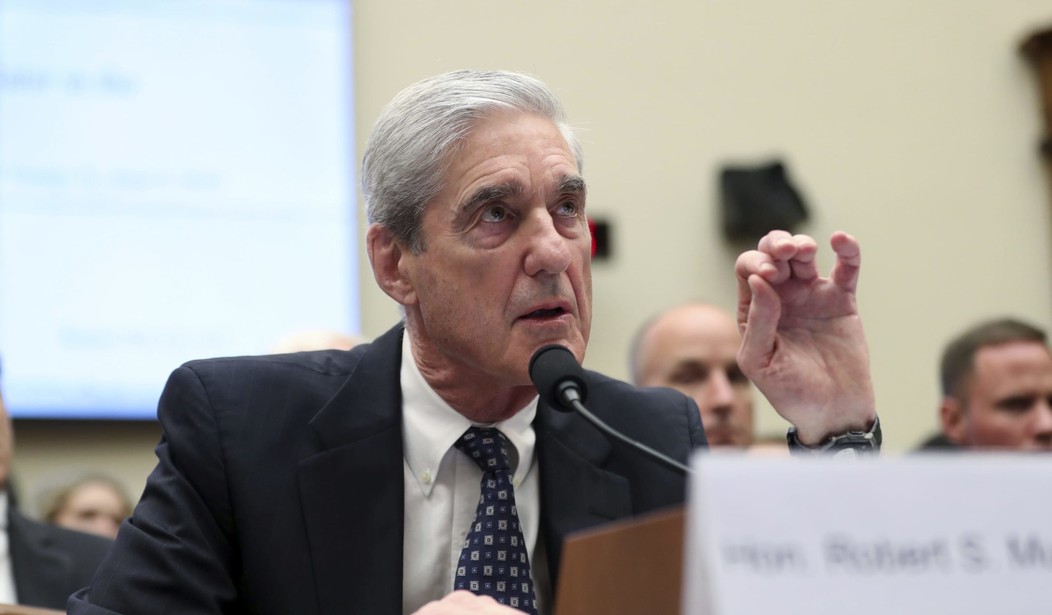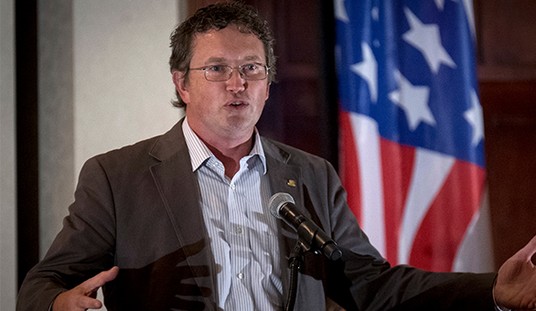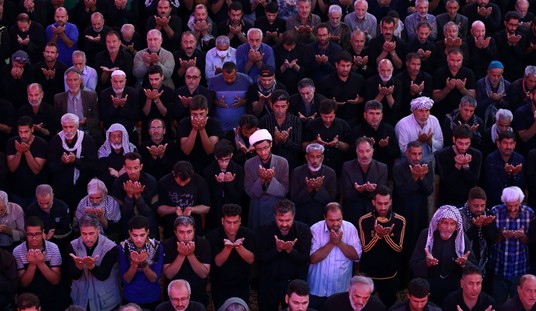The “Russian collusion” case ended in an embarrassing whimper Monday. It turns out that in order to have a “Russian collusion” case, one must have “Russians” and “collusion.” As we found out in the Mueller report from last year, there was no collusion with President Trump. On Monday, Mueller’s prosecutors admitted they’re running out of Russians, too.
Left in the wreckage, the first three years of the Trump candidacy and presidency, his reputation, the erosion of confidence in American governmental institutions, his friends and advisors imprisoned on process crimes from the corrupt investigation and Leftist governmental bots who planned it all who are not in prison.
The charges against three Russian “bot” farms and 13 individuals in Mueller’s so-called Russian collusion case were dropped with prejudice on Monday. But the conclusion of the case was never in doubt.
When Deputy Attorney General Rod Rosenstein announced the Mueller team’s much-ballyhooed charges in February of 2018 he knew they’d never have to prove the charges because the bot-farm operators – one of whom was Vladimir Putin’s acquaintance – would never show up in court, nor could they be compelled to be, thus giving Mueller a paper Russian prosecution.
But, lo, one of the companies, Concord Management and Consulting, LLC, hired a high-powered attorney who came to the Mueller poker table, put some chips on the table, and called the bluff.
Concord’s attorneys ran the table asking for voluminous discovery, as all defendants have the right to do, fighting every motion and spinning the Mueller team in circles by forcing it to argue for delays and sputtering over giving sensitive information to the Russians.
Former federal prosecutor-turned author and pundit Andrew C. McCarthy wrote in 2018,
When Mueller brought the only case he’s charged that involves Russian interference in the 2016 campaign, we noted that it was more theater than prosecution. … It seemed like a perfect opportunity for the special counsel to try to control the narrative: an indictment asserting something that, however highly probable, would be very difficult to prove beyond a reasonable doubt in a criminal trial — namely, that the Russian regime meddled in the U.S. election.
[ … ]
The surest way to put an end to this unwelcome turn of events would be to dismiss the indictment — or at least drop the charges against the three businesses so Prigozhin and the Kremlin can’t use them to force Mueller’s hand. Of course, that would be very embarrassing. But as all prosecutors are taught from their first day on the job: Never indict a case unless you are prepared to try the case.
Defense attorney Robert Barnes wrote, “The only case #Mueller brought to prove ‘Russian interference’ w/ any defense is now being dismissed by DOJ b/c prosecutors knew they couldn’t win at trial. Repeat: the DOJ could not find a single case they could successfully prosecute to prove any act of “Russian interference.”
The only case #Mueller brought to prove "Russian interference" w/ any defense is now being dismissed by DOJ b/c prosecutors knew they couldn't win at trial. Repeat: the DOJ could not find a single case they could successfully prosecute to prove any act of "Russian interference."
— Robert Barnes (@Barnes_Law) March 16, 2020
Judicial Watch’s Tom Fitton saw this coming the second the indictments were announced:
When Mueller and Rosenstein announced "Russia interference" indictment, we warned it would go no where and showed Mueller had NOTHING justifying investigation of @RealDonaldTrump. DOJ confirmed this today in embarrassing ditching, after 2 years, of case. https://t.co/TxhVxl5nGi https://t.co/Aa2drhxazN
— Tom Fitton (@TomFitton) March 17, 2020
Prosecutors said that there is “a substantial federal interest in defending American democratic institutions, exposing those who endeavor to criminally interfere with them, and holding them accountable, which is why this prosecution was properly commenced in the first place,” but which was abandoned on Monday.
This case is separate from the alleged DNC spearphishing case, some of which prosecutors tried to erroneously pin on Trump friend Roger Stone. It’s not clear if the indictment of the 12 people, who are allegedly members of Russian intelligence, will ever be bought to trial.
While there’s no doubt Russia was trying to sow political discord in the U.S. around the 2016 election, phony Facebook accounts, meme-makers and $100,000 worth of Facebook ads hardly seemed a recipe for wholesale election interference. Rosenstein said Russians never actually changed votes in the election and the outcome wasn’t changed.
In fact, crazy stories run by Leftist partisans in the U.S. about the president being a Russian secret agent resulting in the Russia collusion investigation did more damage and sowed more political discord. To the extent that the Russians were behind that operation, then mission accomplished, but that was never alleged.
The Russian bot farm case was sold as the aha! moment in the Mueller investigation and ended with prosecutors asking for dismissal while all eyes were on the coronavirus outbreak, COVID-19.
You can read the ten-page “never mind” motion by the prosecutors:
US v Concord by Techno Fog on Scribd
Here’s Rosenstein’s announcement in 2018:










Join the conversation as a VIP Member